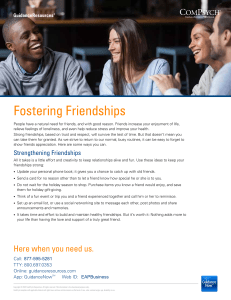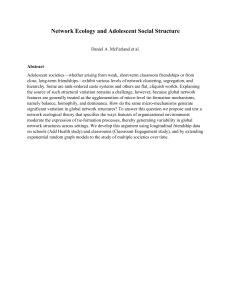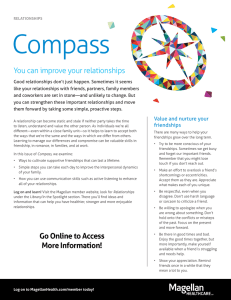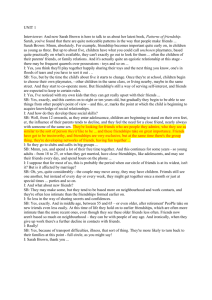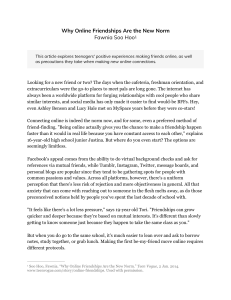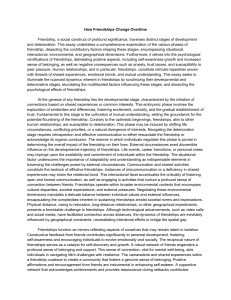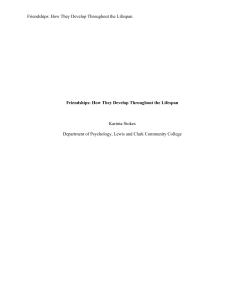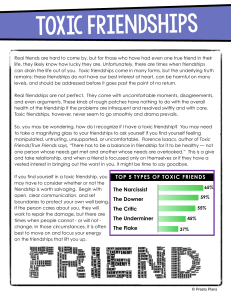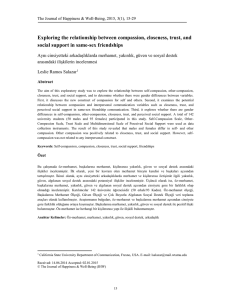Forming new friendships
advertisement
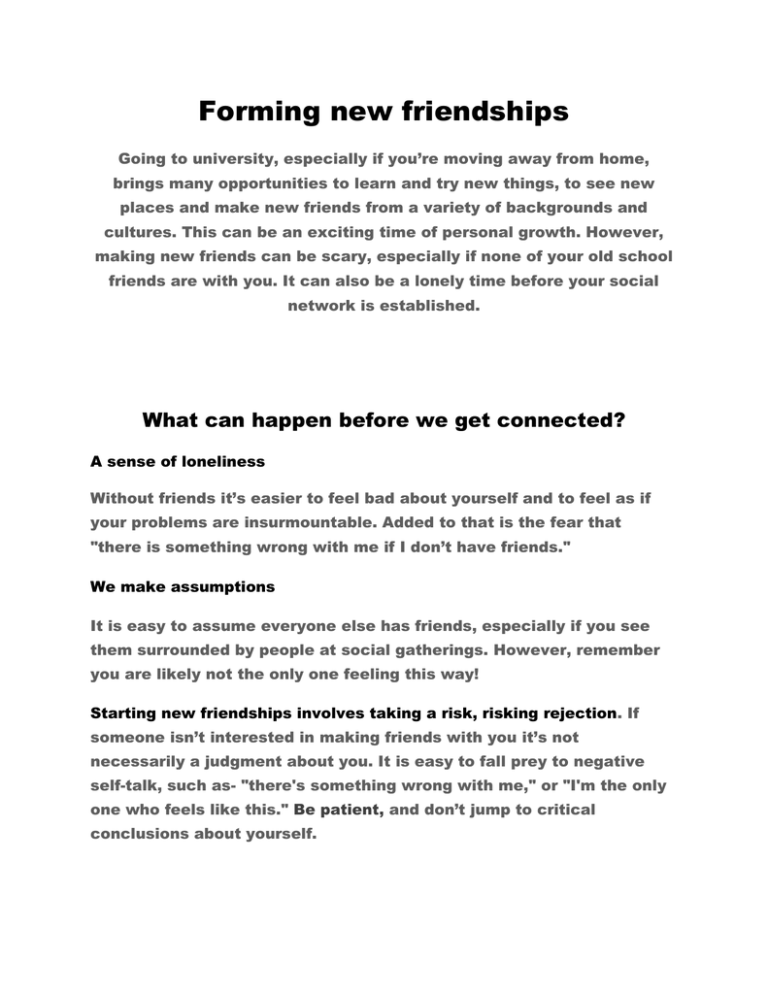
Forming new friendships Going to university, especially if you’re moving away from home, brings many opportunities to learn and try new things, to see new places and make new friends from a variety of backgrounds and cultures. This can be an exciting time of personal growth. However, making new friends can be scary, especially if none of your old school friends are with you. It can also be a lonely time before your social network is established. What can happen before we get connected? A sense of loneliness Without friends it’s easier to feel bad about yourself and to feel as if your problems are insurmountable. Added to that is the fear that "there is something wrong with me if I don’t have friends." We make assumptions It is easy to assume everyone else has friends, especially if you see them surrounded by people at social gatherings. However, remember you are likely not the only one feeling this way! Starting new friendships involves taking a risk, risking rejection. If someone isn’t interested in making friends with you it’s not necessarily a judgment about you. It is easy to fall prey to negative self-talk, such as- "there's something wrong with me," or "I'm the only one who feels like this." Be patient, and don’t jump to critical conclusions about yourself. Making new friends - first steps This requires a few key social skills that can be learned assertiveness is helpful. Remind yourself that anyone in a new environment goes through an adjustment phase and in time you will make friends. Resist the urge to withdraw from people, don’t isolate. Practice your social skills by making a daily effort to always sit beside someone in lectures and say hello to them, get involved in class discussions. See your early attempts to talk to people as just a "practice session." This will make their response less of an issue. You'll be less anxious and more your natural self. Make a commitment to be a friend to yourself first and foremost. Relax alone, and become comfortable with yourself. Find your balance between solitude and socialising. This will help you be your natural self rather than coming across as needy or desperate. Get involved in sport, music, art, religion or clubs on campus - these are great places to meet people, the sport or activity provides a natural icebreaker to overcome any initial awkwardness. Deeper friendships - next steps Understanding yourself more can help. Consider how you like to meet people and what kind of people feel easy to interact with. Is it easy to jump in to conversational groups or do you prefer meeting and talking with people one on one? Give yourself permission to meet people the way that works for you, even if it “seems” different than others around you. Try listening first and talking later. Most people are happy to talk about films they have seen, books they have read, what the government is doing to student loans, sport or even the weather. These topics provide important bridges to more important interesting stuff. Ask “open” questions that encourage conversation vs. yes or no questions. Talk about your feelings and experiences. This helps others start to get a sense of who you are and shows a mutual investment. Try and make friends of both genders and be clear about the nature of you friendships while recognizing the boundaries that distinguish a friendship from an intimate relationship. Friends form a vital part of your personal support network. Taking the time to make friends is part of taking care of yourself, and it gives you the opportunity to be a support to others when they are in need (and that can feel pretty good too!).
